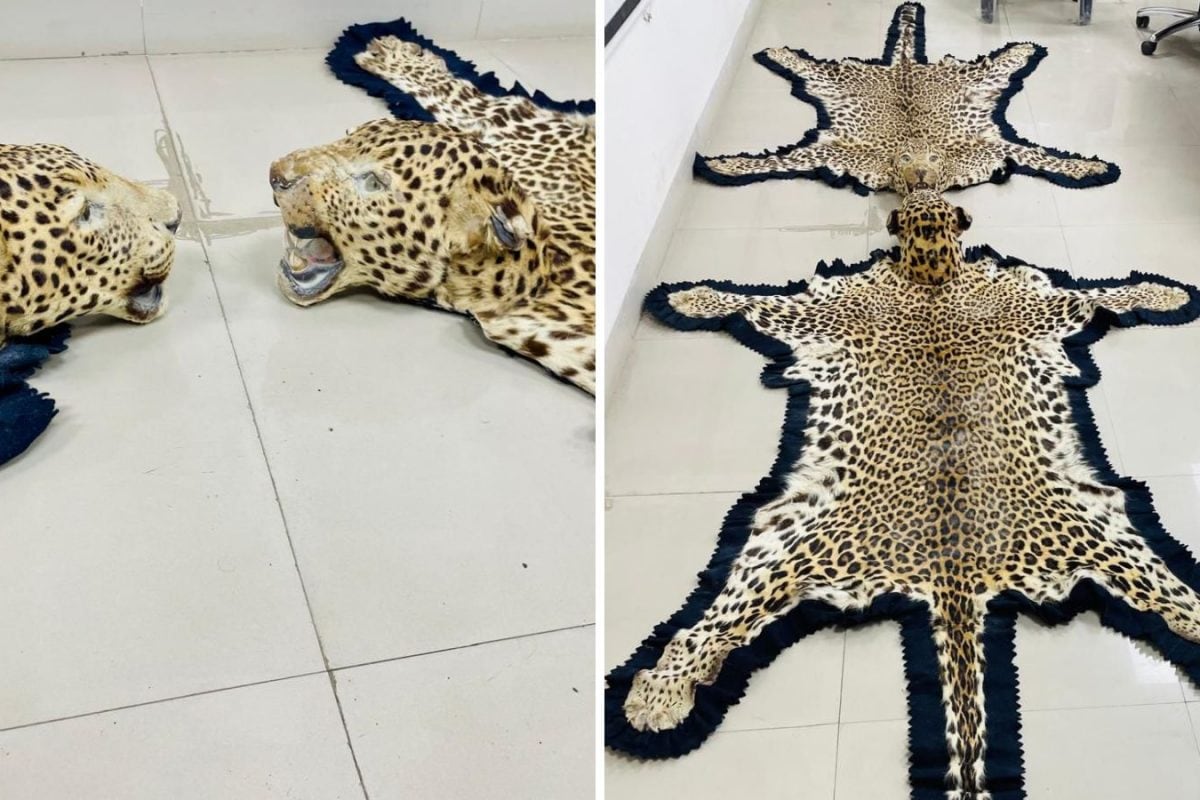

In a significant crackdown on wildlife trafficking, the Directorate of Revenue Intelligence (DRI), Nagpur unit, under the Mumbai Zonal Unit, has seized leopard skins and ivory from two individuals in Ujjain, Madhya Pradesh. The operation, conducted on May 4, 2025, was based on specific intelligence inputs indicating illegal trade of wildlife articles in the city.
DRI officials swiftly acted on the information, intercepting two suspects at a hotel in Ujjain. Upon searching their possessions, the team recovered two leopard skins, complete with heads, and one ivory item, believed to be a wild boar horn. The seized items are listed under Schedule I of the Wild Life (Protection) Act, 1972, which strictly prohibits the possession, sale, or trade of such protected wildlife products. Leopards are considered an endangered species, making any commercial activity involving their body parts a criminal offense.
Following the seizure, the two offenders were handed over to the District Forest Division, Ujjain, along with the seized wildlife articles for further investigation and legal proceedings under the Wildlife Act. The arrests could potentially expose a larger network of wildlife traffickers operating in central India.
This isn't the first successful operation by DRI Nagpur this year. In January 2025, the same unit intercepted three individuals and recovered one leopard skin in Akola district, Maharashtra. These instances highlight a continuing pattern of wildlife trafficking across state lines and the DRI's commitment to curbing such illegal activities.
The DRI, known for its intelligence-led enforcement, plays a key role in combating wildlife trafficking. By disrupting trafficking networks, the DRI contributes significantly to the conservation of leopards and other endangered species. The agency's ongoing efforts are crucial for protecting wildlife and preserving biodiversity in India. Central India's reserved forests are often targeted by interstate poacher gangs. Sources indicate that increasing leopard populations may make them easier targets for poachers.